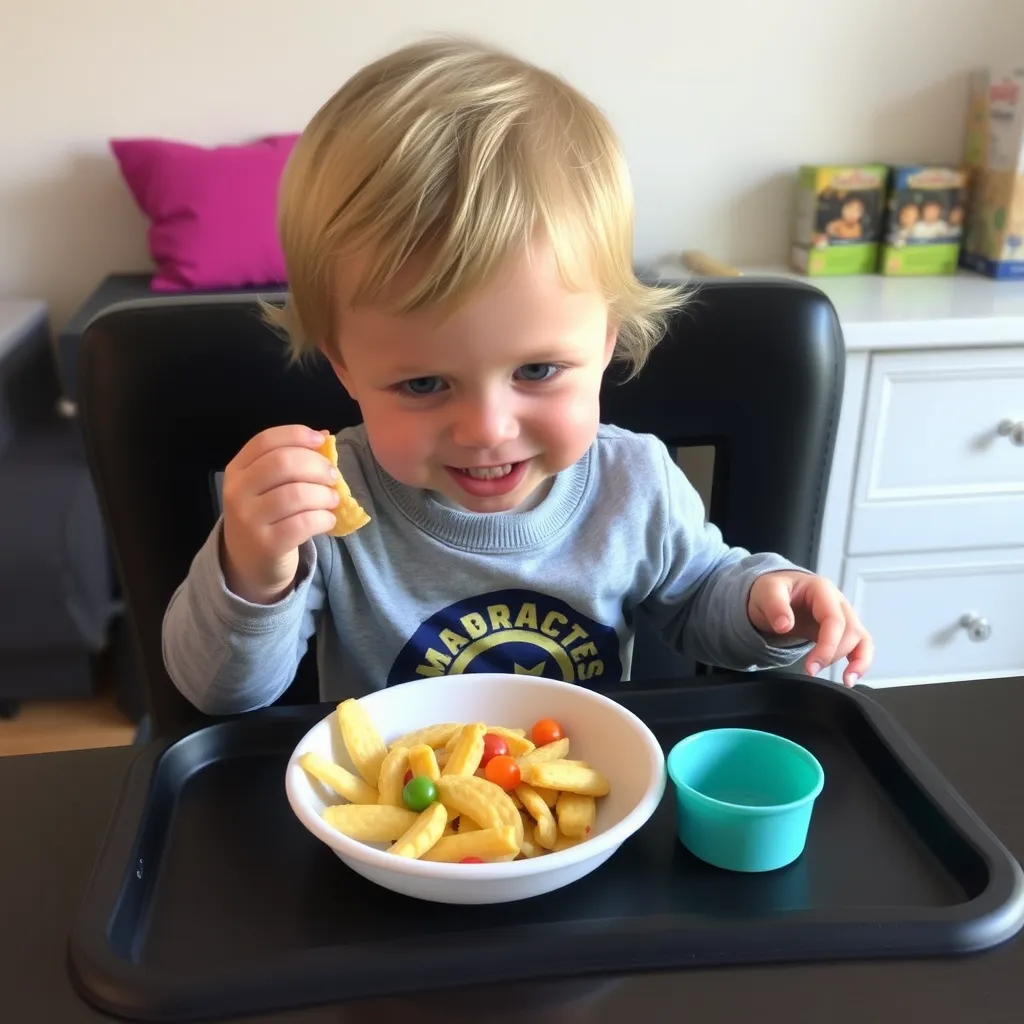Is your my 2 year old won’t eat anything but snacks? You’re not alone! Many parents struggle with toddlers who seem to survive on crackers and fruit snacks alone. In this comprehensive guide, we’ll explore why your little one might be fixated on snacks and provide practical strategies to expand their palate and ensure they’re getting the nutrition they need.
Table of Contents
Quick Tips Why my 2 year old won’t eat anything but snacks

- Offer a variety of healthy snacks alongside meals
- Maintain a consistent meal and snack schedule
- Make mealtimes fun and engaging
- Be patient and persistent – it can take up to 15-20 exposures for a child to accept a new food
- Avoid pressuring or bribing your child to eat
- Set a good example by eating a variety of foods yourself
30 Delicious Toddler Meal Ideas Your Little One Will Love!
Understanding Your Snack-Obsessed Toddler
Before we dive into solutions, it’s important to understand why your 2-year-old might be refusing anything but snacks. Toddlers are notoriously picky eaters, and there are several reasons for this behavior:
- Developmental stage: Toddlers are asserting their independence and may use food as a way to exert control.
- Sensory sensitivity: Some children are more sensitive to textures, tastes, and smells, making new foods challenging.
- Grazing habit: Constant snacking can lead to less hunger at mealtimes.
- Preference for familiar foods: Snacks are often predictable and comforting.
Strategies to Encourage Healthy Eating Habits
1. Establish a Routine
Creating a consistent meal and snack schedule can help regulate your child’s hunger patterns and make them more receptive to meals.
“A predictable eating routine can help toddlers feel more secure and open to trying new foods,” says pediatric nutritionist Dr. Sarah Johnson.
2. Make Meals More Appealing
Transform regular meals into fun experiences that rival the appeal of snacks:
- Use cookie cutters to create fun shapes
- Arrange food in colorful patterns or faces on the plate
- Involve your child in meal preparation
- Offer dips like hummus or yogurt with vegetables
The Heartbreaking Truth Behind Children Fearful of Parents
3. Sneak in Nutrition
If your 2-year-old won’t eat anything but snacks, make those snacks count:
- Add pureed vegetables to smoothies or sauces
- Offer nutrient-dense snacks like avocado toast or nut butter on whole-grain crackers
- Make homemade popsicles with pureed fruits and vegetables
4. Lead by Example
Children often mimic their parents’ behaviors, including eating habits. Make family mealtimes a priority and show enthusiasm for a variety of foods.
5. Avoid Pressure Tactics
Forcing or bribing your child to eat can create negative associations with food. Instead, offer choices within healthy parameters.
“Would you like carrot sticks or cucumber slices with your sandwich?” gives your child control while ensuring they’re eating something nutritious.
The Importance of Patience and Persistence

Remember, it’s normal for toddlers to go through phases of picky eating. Research shows that it can take up to 15-20 exposures for a child to accept a new food. Stay patient and keep offering a variety of healthy options.
When to Seek Professional Help
While picky eating is common, there are times when you should consult a pediatrician:
- If your child is losing weight or not growing as expected
- If extremely limited food preferences persist beyond the toddler years
- If you suspect a sensory processing disorder or other underlying issue
Creative Ways to Introduce New Foods
Food art can make meals more appealing to picky eaters
Involving children in meal prep can increase their interest in food
Try these fun ideas to encourage your 2-year-old to explore new foods:
- Food art: Create pictures or scenes on the plate using different foods.
- Taste tests: Have a family taste test of different fruits or vegetables.
- Garden together: Grow herbs or vegetables to spark interest in fresh foods.
- Cooking classes: Attend toddler-friendly cooking classes or workshops.
- Food-themed books: Read stories about trying new foods or different cultures’ cuisines.
Nutritional Considerations for Snack-Loving Toddlers
While working on expanding your child’s palate, ensure they’re getting essential nutrients through the snacks they do eat:
- Protein: Offer cheese cubes, yogurt, or nut butter (if no allergies)
- Fruits and Vegetables: Try freeze-dried options or blend into smoothies
- Whole Grains: Choose whole grain crackers or cereals
- Healthy Fats: Include avocado or olive oil in dips
Consider consulting a pediatric nutritionist for personalized advice on meeting your child’s nutritional needs during this phase.
The Role of Routine in Overcoming Picky Eating

Establishing a consistent routine can significantly impact your 2-year-old’s eating habits. Here’s a sample schedule to consider:
| Time | Meal/Snack |
|---|---|
| 7:00 AM | Breakfast |
| 10:00 AM | Morning Snack |
| 12:30 PM | Lunch |
| 3:30 PM | Afternoon Snack |
| 6:00 PM | Dinner |
Stick to this schedule as closely as possible, offering water between meals to avoid filling up on liquids.
FAQs About Toddlers Who Only Want Snacks
Q: Is it normal for my 2-year-old to only want snacks?
A: While it’s common for toddlers to go through picky eating phases, a diet consisting solely of snacks is not ideal. Continue offering a variety of foods at mealtimes.
Q: Should I withhold snacks to make my child eat meals?
A: Withholding food is not recommended. Instead, offer healthy snacks at set times and nutritious meals on a regular schedule.
Q: How can I make vegetables more appealing to my toddler?
A: Try serving vegetables in different forms (raw, roasted, pureed), use dips, or incorporate them into favorite dishes like smoothies or pasta sauces.
Q: Are there any supplements my snack-loving toddler should take?
A: Consult your pediatrician before starting any supplements. They may recommend a multivitamin if your child’s diet is very limited.
Q: How long will this picky eating phase last?
A: Every child is different, but many outgrow extreme pickiness by school age. Consistent exposure to a variety of foods can help shorten this phase.
Conclusion: Patience and Persistence Pay Off
Dealing with a 2-year-old who won’t eat anything but snacks can be frustrating, but remember that this is a common phase in child development. By offering a variety of healthy foods, maintaining a consistent routine, and making mealtimes enjoyable, you can gradually expand your child’s palate.
Stay patient, keep mealtimes positive, and celebrate small victories. With time and persistence, your snack-loving toddler will likely grow into a more adventurous eater.
For more parenting tips and nutrition advice, check out our related articles:
- Essential Nutrition Guide for Toddlers
- 10 Fun Food Activities to Try with Your Picky Eater
- 20 Healthy Snack Ideas Your Toddler Will Love
Remember, every child is unique, and what works for one may not work for another. Trust your instincts, consult professionals when needed, and keep fostering a positive relationship with food in your home.











